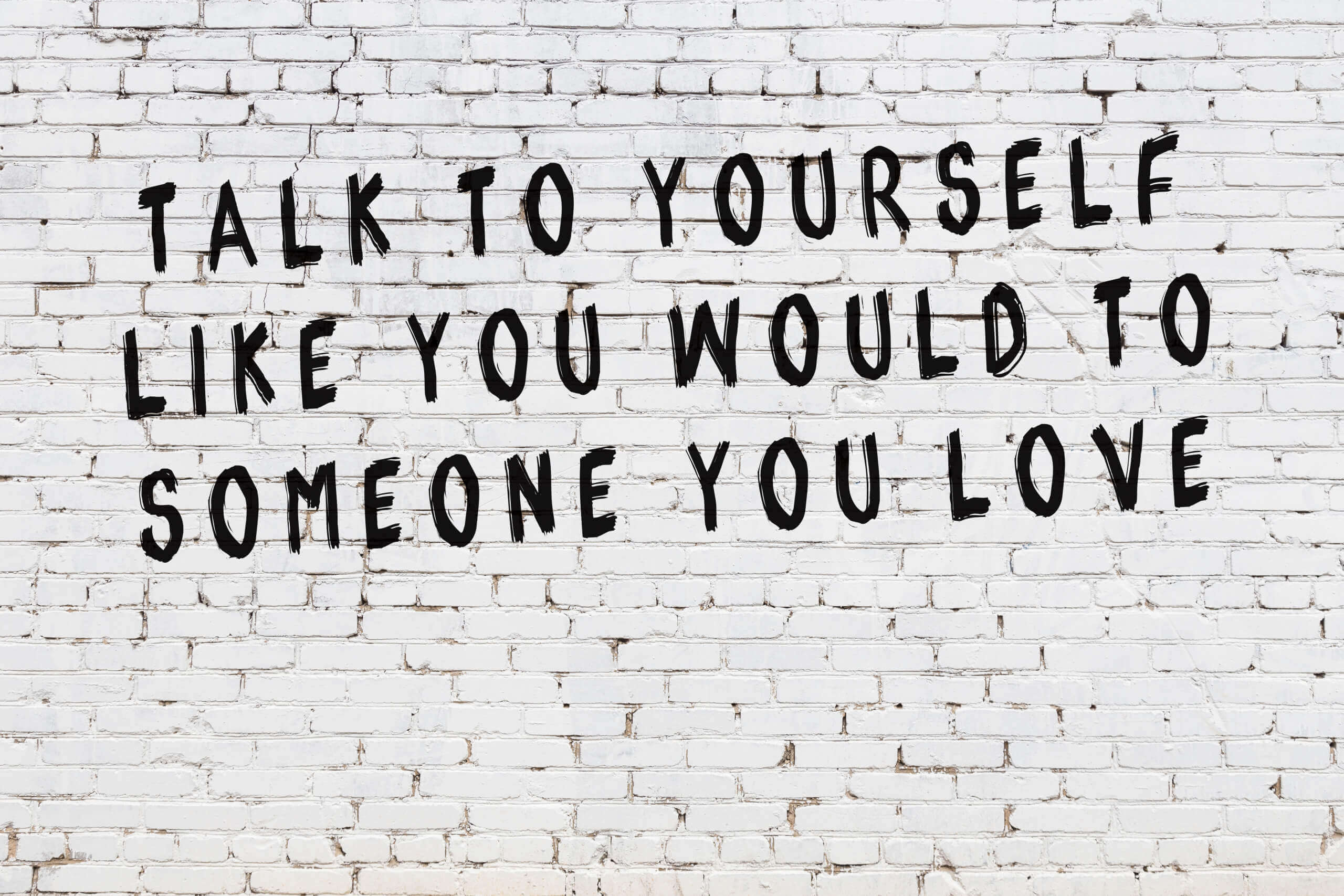What does it mean to have a positive self-image? Self-image refers to how we see ourselves, including our personality, physical appearance, abilities, and behaviors. However, having a positive self-image means more than just having high esteem or confidence in oneself.
It also involves accepting and appreciating one’s flaws and embracing them as part of their unique identity. Having a positive self-image is essential for personal growth and success in life.
It enables individuals to make better decisions, build healthy relationships with others, persevere through difficult times, and achieve their goals. On the other hand, negative self-talk can lead to anxiety, depression, low motivation levels, and even self-destructive behaviors.
Definition of Positive Self-Image
A positive self-image is a healthy perception of oneself that involves recognizing personal strengths as well as limitations. Individuals with a positive self-image are confident in their abilities without feeling superior to others or criticizing themselves excessively.
Having a positive self-image enables individuals to appreciate their unique qualities while acknowledging areas where they can improve. It allows them to embrace challenges as opportunities for growth instead of being defined by failures or rejections.
The Importance of Having A Positive Self-Image
Developing a positive self-image is crucial for emotional wellbeing and overall success in life. When individuals have confidence in themselves and appreciate their unique qualities truly, they are more likely to take on challenges with enthusiasm rather than fear or anxiety.
A positive attitude towards oneself also enables individuals to build stronger relationships with others both personally and professionally.
People tend to be drawn towards those who exude positivity rather than negativity; therefore having high esteem can create opportunities for social support that help us navigate through tough times. : developing a positive image of yourself creates endless possibilities for growth both personally and professionally while allowing you to build healthier relationships with others.
Understanding Self-Image
Self-image refers to the way individuals perceive themselves and their world. It is a critical component of one’s identity, which plays a significant role in shaping their thoughts, feelings, and behaviors. While self-image can be influenced by various factors, it is primarily shaped by our own experiences and social interactions with others.
Definition of Self-Image
A self-image is a mental representation an individual has about themselves based on their experiences, beliefs, and values. This includes ideas about physical appearance, intelligence, personality traits, abilities, and achievements. These images are not necessarily accurate but represent an individual’s perception of themselves.
Factors that Influence Self-Image
The development of self-image is influenced by several factors:
Personal Experiences
Personal experiences play a considerable role in shaping an individual’s self-image. Childhood experiences with family members or peers can shape how one views themselves for life. Traumatic events or negative experiences can also impact one’s self-esteem leading to low self-worth and negative labels.
Social and Cultural Influences
Social norms influence how we view ourselves in different contexts like family life or work-life balance. Societal media pressure on body image impacts many individuals leading to disordered eating habits due to unrealistic beauty standards set through media representation.
Media Representation
The media often portrays idealized images that can promote unrealistic expectations for people as they compare themselves to what they see portrayed on television shows or social media platforms creating harmful consequences such as anxiety and depression from feeling inadequate.
The Impact of Negative Self-Image
A negative self-image can lead to feelings of worthlessness or low-self esteem that cause us to avoid new experiences or personal growth in all aspects of life. When we feel unworthy, we tend to withdraw from situations that might help us improve our lives, leading to fewer opportunities for advancement or success.
People with negative self-image may be more susceptible to feelings of sadness, depression, and anxiety.
The constant focus on one’s perceived flaws rather than their strengths can lead to a negative cycle of self-doubt and criticism which is detrimental in all areas of life. Understanding self-image is crucial for personal growth and development as it affects an individual’s thoughts, emotions, behaviors and ultimately their success in life.
Personal experiences like traumatic events can have lifelong impacts on self-esteem but social norms and media representation play equally important roles in shaping an individual’s sense of self-worth.
A negative self-image can lead to a lack of confidence, reduced opportunities for growth leading to depressive symptoms thus taking care of one’s self-image leads to a better quality of life.
Building a Positive Self-Image
Accepting and Embracing Your Flaws
One of the most important steps in building a positive self-image is accepting and embracing your flaws. As human beings, we are all imperfect, and it is crucial to recognize this fact. Instead of trying to hide or fix our flaws, we need to learn to embrace them as part of who we are.
This means acknowledging our weaknesses and mistakes without judging ourselves too harshly. By doing so, we can build a more authentic relationship with ourselves and others.
Recognizing Your Strengths and Weaknesses
Another important step in building a positive self-image is recognizing your strengths and weaknesses. Often, people tend to focus more on their weaknesses than their strengths, which can lead to feelings of inadequacy or low self-esteem.
It is crucial to identify your strengths as well as areas where you might need improvement. Recognizing your unique talents and abilities can help you feel more confident in yourself.
Learning to Love Yourself Unconditionally
A key aspect of building a positive self-image is learning to love yourself unconditionally. This means accepting who you are, flaws included, without judgment or criticism. When you love yourself unconditionally, you cultivate an inner sense of worthiness that does not depend on external validation or approval from others.
Surrounding Yourself with Positivity
Building a positive self-image also involves surrounding yourself with positivity. This means seeking out people who support and encourage you rather than bring you down. It also means creating an environment that supports growth and positivity instead of negativity or toxic behavior.
Building Healthy Relationships with Supportive People
Healthy relationships are essential for building a positive self-image. Surrounding yourself with supportive people who encourage growth can provide the emotional support you need to stay optimistic and motivated. Building strong connections with others can also give you a sense of belonging, which can help you feel more confident in yourself.
Creating an Environment That Promotes Positivity and Growth
Creating an environment that promotes positivity and growth is crucial for building a positive self-image. This means creating a space that is conducive to your personal goals and aspirations.
It might involve decluttering your physical space or establishing routines that promote wellness or productivity. By creating an environment that supports positivity and growth, you can empower yourself to become the best version of yourself.
Setting Achievable Goals And Celebrating Small Wins
Setting achievable goals and celebrating small wins plays a critical role in developing a positive self-image. It’s important to set realistic goals so that we don’t get discouraged when we don’t meet them.
Celebrating small wins along the way helps us stay motivated towards reaching our larger goals, putting ourselves one step closer towards success.
Whether it’s learning something new or crossing off tasks on our to-do list, every little accomplishment deserves recognition. These small wins help us develop confidence in ourselves and instill the belief that we are capable of achieving our bigger dreams as well.
The Benefits of a Positive Self-Image
Improved Mental Health: Reducing Anxiety, Depression, and Stress Levels
When you cultivate a positive self-image, you experience improved mental health. One of the most significant benefits of a positive self-image is the reduction of anxiety, depression, and stress levels. People with negative self-images often suffer from mental health problems that can be debilitating.
However, having a positive outlook on oneself can lead to reduced feelings of anxiety and depression. When you have a positive self-image, you are more likely to feel confident in your abilities and strengths.
As a result, you will not feel overwhelmed or anxious when facing challenges because you know that you are capable of handling them. By reducing stress levels and preventing negative thoughts from taking over your mind it is easier for someone to enjoy life with less worry.
Increased Confidence and Resilience
Another benefit of having a positive self-image is increased confidence and resilience. When you have confidence in yourself and your abilities, it becomes easier to face challenges head-on without fear or doubt. Resilience is also an essential attribute when it comes to personal development.
People who have high emotional resilience can overcome obstacles more easily than those who do not possess this quality. Being resilient means that one has the strength to bounce back from setbacks or failures quickly without letting negative emotions take over their life.
Better Physical Health: Improved Immune System Function & Reduced Risk of Chronic Diseases
Not only does having a positive self-image improve mental health but also physical health too! Studies show that people who have high self-esteem tend to be healthier overall than those who do not possess this attribute.
Having a good opinion about oneself contributes positively towards the immune system function resulting in better physical health. Additionally, people with high levels of confidence often make better lifestyle choices such as eating well, exercising regularly, and getting enough sleep.
These factors further reduce the risk of chronic diseases such as diabetes and heart disease. People with a positive self-image also tend to have a more optimistic outlook on life hence avoiding worry which in turn lessens the occurrence of physical health issues.
Success in Personal and Professional Life: Better Communication Skills, More Fulfilling Relationships & Greater Career Opportunities
Having a positive self-image leads to success both in personal and professional life. When you feel good about yourself, you communicate better with others which makes it easier for people around you to understand your needs and desires.
Good communication skills foster healthy relationships with friends, family members, coworkers, and supervisors alike.
People who have high self-esteem are also more likely to take risks that lead to greater achievements in their careers. They also have better chances of being noticed by their supervisors or peers resulting in career advancements or new opportunities.
Having a positive self-image is essential for personal growth. When an individual focuses on their strengths instead of weaknesses they will be able to cultivate higher levels of confidence, emotional resilience hence leading them towards success both personally and professionally while maintaining good physical health along the way!
Importance of Cultivating a Positive Self-Image
Cultivating a positive self-image is essential for achieving personal growth and success in life. When you have a positive outlook on yourself, you are more likely to take risks that can lead to great opportunities. It can help you develop better relationships with others as well as foster inner peace within yourself.
A positive self-image allows you to appreciate your strengths while also acknowledging your weaknesses without judgment or criticism. It gives you the courage to face challenges head-on while maintaining hope for the future.
Final Thoughts on the Benefits of Having a Positive Outlook on Oneself
Developing a positive self-image is incredibly vital for anyone who wants to live their best life possible. When we feel good about ourselves both inside and out we become unstoppable forces that can accomplish anything we set our minds too.
Therefore it’s important not only for ourselves but also those around us – our friends family loved ones – so they too can see how amazing we are when we love ourselves just as much as they do. Remember, you’re never too old or young to start cultivating a positive self-image, so starting today and watch positive changes unfold in your life.
20 positive self-image affirmations
- “I am enough just as I am.”
- “I am proud of who I am becoming.”
- “I love myself unconditionally.”
- “I am worthy of love and respect.”
- “I am a unique individual with much to offer the world.”
- “I am confident in my abilities and strengths.”
- “I am kind, compassionate, and empathetic.”
- “I am resilient and can overcome any challenge.”
- “I embrace my flaws as part of what makes me unique.”
- “I am proud of my accomplishments and excited for my future.”
- “I am constantly growing and evolving.”
- “I am deserving of happiness and success.”
- “I am capable of achieving my goals and dreams.”
- “I am at peace with my past and looking forward to my future.”
- “I am valuable and my contributions matter.”
- “I am not defined by my mistakes, but by my potential.”
- “I am deserving of all the good in my life.”
- “I am not perfect, and that’s okay. Perfection is not the goal.”
- “I am grateful for the person I am and the person I’m becoming.”
- “I am deserving of love, just as I am.”
Remember, affirmations are more effective when you truly believe in what you are saying. If any of these affirmations do not resonate with you, feel free to modify them or create your own to better align with your personal beliefs and values.
20 positive self-image quotes:
- “To love oneself is the beginning of a life-long romance.” – Oscar Wilde
- “You yourself, as much as anybody in the entire universe, deserve your love and affection.” – Buddha
- “What lies behind us and what lies before us are tiny matters compared to what lies within us.” – Ralph Waldo Emerson
- “You are not a mistake. You are not a problem to be solved. But you won’t discover this until you are willing to stop banging your head against the wall of shaming and caging and fearing yourself.” – Geneen Roth
- “You are very powerful, provided you know how powerful you are.” – Yogi Bhajan
- “You have been criticizing yourself for years, and it hasn’t worked. Try approving of yourself and see what happens.” – Louise L. Hay
- “Love yourself first and everything else falls into line. You really have to love yourself to get anything done in this world.” – Lucille Ball
- “Trust yourself. You know more than you think you do.” – Benjamin Spock
- “You are always with yourself, so you might as well enjoy the company.” – Diane Von Furstenberg
- “The most terrifying thing is to accept oneself completely.” – Carl Jung
- “To establish true self-esteem we must concentrate on our successes and forget about the failures and the negatives in our lives.” – Denis Waitley
- “Never bend your head. Always hold it high. Look the world straight in the face.” – Helen Keller
- “The better you feel about yourself, the less you feel the need to show off.” – Robert Hand
- “You were not born a winner, and you were not born a loser. You are what you make yourself be.” – Lou Holtz
- “The real difficulty is to overcome how you think about yourself.” – Maya Angelou
- “Believe in yourself and all that you are. Know that there is something inside you that is greater than any obstacle.” – Christian D. Larson
- “You are not your mistakes; they are what you did, not who you are.” – Lisa Lieberman-Wang
- “Act as if what you do makes a difference. It does.” – William James
- “You are braver than you believe, stronger than you seem, and smarter than you think.” – A.A. Milne
- “You are never too old to set another goal or to dream a new dream.” – C.S. Lewis
These quotes emphasize self-love, self-acceptance, and the power of positive self-image.




























































